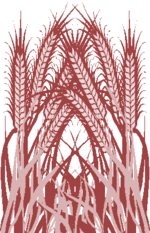Syngenta Seeds v. Delta Cotton (Fed. Cir. 2006).
In a case involving a variety of soft winter wheat, the CAFC has effectively reversed a jury's finding of infringement and damages under Section 2567 of the Plant Variety Protection Act (PVPA) because the accused seed seller did not have proven knowledge that the seeds were protected.
Here, Delta was reselling seeds that had been provided by local farmers. Delta's apparent "don't ask don't tell" policy with regard to the variety of seed enabled it to escape liability under the PVPA.
Lanham Act: Syngenta also accused Delta of "reverse passing off" because Delta was selling the Syngenta variety of seed under the Delta Cotton name. Reverse passing off is generally thought of as "misrepresenting someone else's goods or services as [your] own." Dastar.
The CAFC agreed with Syngenta that reverse passing off has no scienter requirement and thus proof of Delta's knowledge would not be required. However, Syngenta did not show proof that the misidentification of goods caused any harms to Syngenta's business or mark.
Reversed
To continue reading, become a Patently-O member. Already a member? Simply log in to access the full post.
